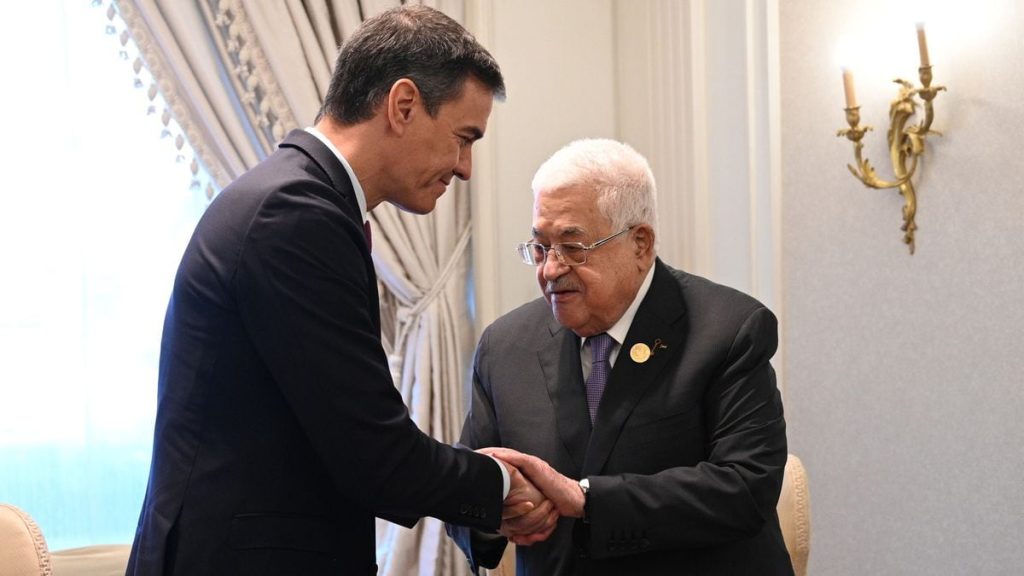Spain will not open an embassy in Ramallah, the city in the West Bank where Palestinian President Mahmoud Abbas resides and where his government is headquartered, despite formally recognizing the State of Palestine in the coming weeks. Instead, the Consul General in Jerusalem, diplomat Alfonso Lucini, will represent Spain in the new state, a role he has already been informally fulfilling. While most countries that recognize the State of Palestine have a diplomatic office in Ramallah, where there are about 40 foreign representations, the Spanish government has no intention of opening a headquarters in the West Bank, preferring to have the Consulate General of Spain in Jerusalem take on this function.
Lucini has been carrying out this task already, as his consular jurisdiction covers Jerusalem, the West Bank, and the Gaza Strip—the territories that should comprise the new state. He is also responsible for humanitarian cooperation with the Palestinian people, relations with the administration of Mahmoud Abbas, and management of the so-called Holy Land Endowment, the properties of the Spanish state in Palestine. Among the countries with consulates in Jerusalem, the only other state recognizing the State of Palestine, besides Sweden, is Turkey. Its consul also serves as ambassador. The recognition of the new state will not have practical effects on the office of the Palestinian National Authority in Spain, as it holds the rank of “diplomatic mission” and enjoys all the immunities and privileges of an embassy.
The Ministry of Foreign Affairs has already activated all the machinery to recognize the State of Palestine, awaiting President Pedro Sanchez’s decision on the appropriate timing. After meeting with officials from countries favorable to recognition such as Ireland, Slovenia, Norway, Malta, and Luxembourg in recent weeks, government sources rule out a collective decision and suggest a “domino effect” where Spain, either alone or with another country, will take the final step. Diplomatic sources emphasize that even France, hesitant towards formal recognition, voted on the 18th in the Security Council in favor of Palestine’s full membership in the UN. Prime Minister Sanchez has committed to recognition “this semester,” likely before the campaign for European Parliament elections starting May 24.
The decision to recognize the State of Palestine may provoke a negative reaction from the Israeli government, as seen when they recalled their ambassador from Stockholm following Sweden’s recognition of Palestine. Diplomatic sources point out that the recognition is not an end in itself, but a tool to strengthen the Palestinian delegation for an international conference supported by Spain as the only way to achieve lasting peace in the region. Sanchez reportedly discussed this with Abbas in a recent phone call. However, sources acknowledge that the opportunity for the conference may be lost if Donald Trump wins the U.S. elections in November and returns to the White House in January.
In conclusion, Spain’s decision to recognize the State of Palestine while not opening an embassy in Ramallah highlights its support for a peaceful resolution to the Israeli-Palestinian conflict. By continuing to engage through its consulate in Jerusalem and diplomatic channels, Spain aims to contribute to a lasting solution in the region. The government’s commitment to recognizing Palestine this semester demonstrates its dedication to promoting peace and stability in the Middle East.


